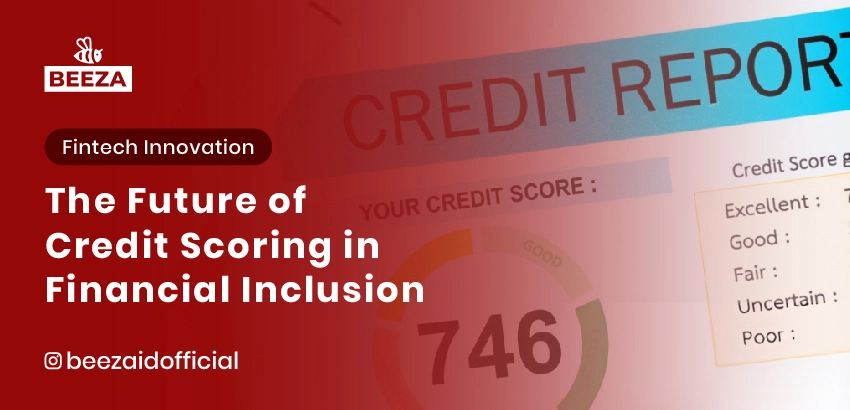
Access to credit is a cornerstone of financial empowerment, enabling individuals to start businesses, invest in education, and achieve personal goals. However, for many, especially in underserved communities, traditional credit scoring systems remain a significant barrier. Credit scoring plays a pivotal role in enhancing financial inclusion by providing broader credit access to individuals and businesses. Through the integration of alternative data, these systems become more inclusive, serving those without extensive credit histories.
The Importance of Financial Inclusion
Financial inclusion ensures that individuals and businesses can access affordable financial products and services, including credit, savings, insurance, and payment systems. Without this access, many remain on the fringes of the formal economy, relying on high-cost informal loans or being entirely excluded from credit opportunities. This inequity limits growth and stability opportunities at both individual and community levels.
Credit scoring is a key driver of financial inclusion as it provides a measurable way for financial institutions to assess borrower risk. By modernizing credit scoring models, financial institutions can extend their services to cover a broader demographic.
How Credit Scoring Supports Financial Inclusion
Expanding Lending Reach
Traditional credit scoring often relies on data such as bank account history, credit card usage, and past loans. While effective for established customers, this approach leaves out individuals in rural areas, informal workers, or those with limited access to traditional banking services. Modern credit scoring systems that incorporate alternative data enable financial institutions to reach these underserved populations.
Reducing Bias in Lending
Automated credit scoring systems minimize subjectivity in the manual loan approval process. By relying on data-driven insights rather than personal judgment, lenders can ensure fairer access to credit.
Supporting Microloans and Small Business Growth
Small businesses, particularly in emerging markets, often struggle to access credit due to a lack of credit history. Inclusive credit scoring models can assess their eligibility based on alternative metrics, enabling them to secure loans and drive economic growth.
The Role of Alternative Data in Building Inclusive Credit Profiles
To make credit scoring systems more inclusive, integrating alternative data is essential. This approach goes beyond traditional financial records to assess creditworthiness based on a more comprehensive view of an individual’s financial behavior.
Key Sources of Alternative Data
- Utility Payments: Timely payments for electricity, water, and phone bills indicate financial responsibility.
- Mobile Transactions: In regions where electronic money is common, transaction histories can demonstrate income stability and spending patterns.
- Rental Payments: For those without mortgages, rental payment history is a strong indicator of financial reliability.
- Digital Footprint and Social Media: Although controversial, some systems analyze online activity to assess consistency and lifestyle patterns.
Benefits of Using Alternative Data
- Broader Reach: Leveraging data sources accessible to the unbanked and underbanked populations allows lenders to assess individuals previously invisible to financial systems.
- Improved Risk Assessment: A wider range of data provides a more accurate picture of a borrower’s risk profile.
- Customized Loan Products: With deeper insights, financial institutions can design products better suited to the needs and capabilities of underserved customers.
Challenges in Implementing Inclusive Credit Scoring
Despite its potential, several challenges must be addressed to maximize the effectiveness of inclusive credit scoring systems:
- Data Privacy and Security: Collecting and analyzing alternative data raises concerns about data privacy and the ethical use of sensitive information.
- Standardization: Ensuring consistent use of alternative data across institutions is crucial to maintaining fairness and reliability.
- Adoption by Financial Institutions: Traditional lenders may be hesitant to adopt new systems, particularly in markets resistant to change.
- Algorithmic Bias: While automated systems reduce human bias, poorly designed algorithms can introduce unintended biases.
The Future of Credit Scoring in Financial Inclusion
The future of credit scoring lies in its ability to harness new technologies and integrate with other financial systems:
- AI and Machine Learning: These technologies can analyze vast amounts of data to uncover trends and predict creditworthiness with unprecedented accuracy.
- Blockchain for Transparency: Distributed ledger technology can ensure transparency and reduce fraud in credit scoring systems.
- Global Standards for Alternative Data: As alternative data usage grows, establishing global standards will ensure its ethical and effective application.
- Partnerships with Fintech: Collaborations between traditional banks and fintech companies can accelerate the adoption of innovative credit scoring methods.
Key Takeaways
- Inclusive credit scoring systems are essential for expanding financial access to underserved populations.
- Integrating alternative data such as utility payments and mobile transactions allows for more accurate and fair credit profiles.
- Challenges such as data privacy, standardization, and adoption need to be addressed to ensure success.
- Technologies like AI and blockchain promise a brighter future for inclusive credit scoring.
By prioritizing inclusivity and innovation, credit scoring systems can transform access to financial services, enabling millions to participate in the global economy. Ready to explore how inclusive credit solutions can benefit your business? Contact us for more business solutions!